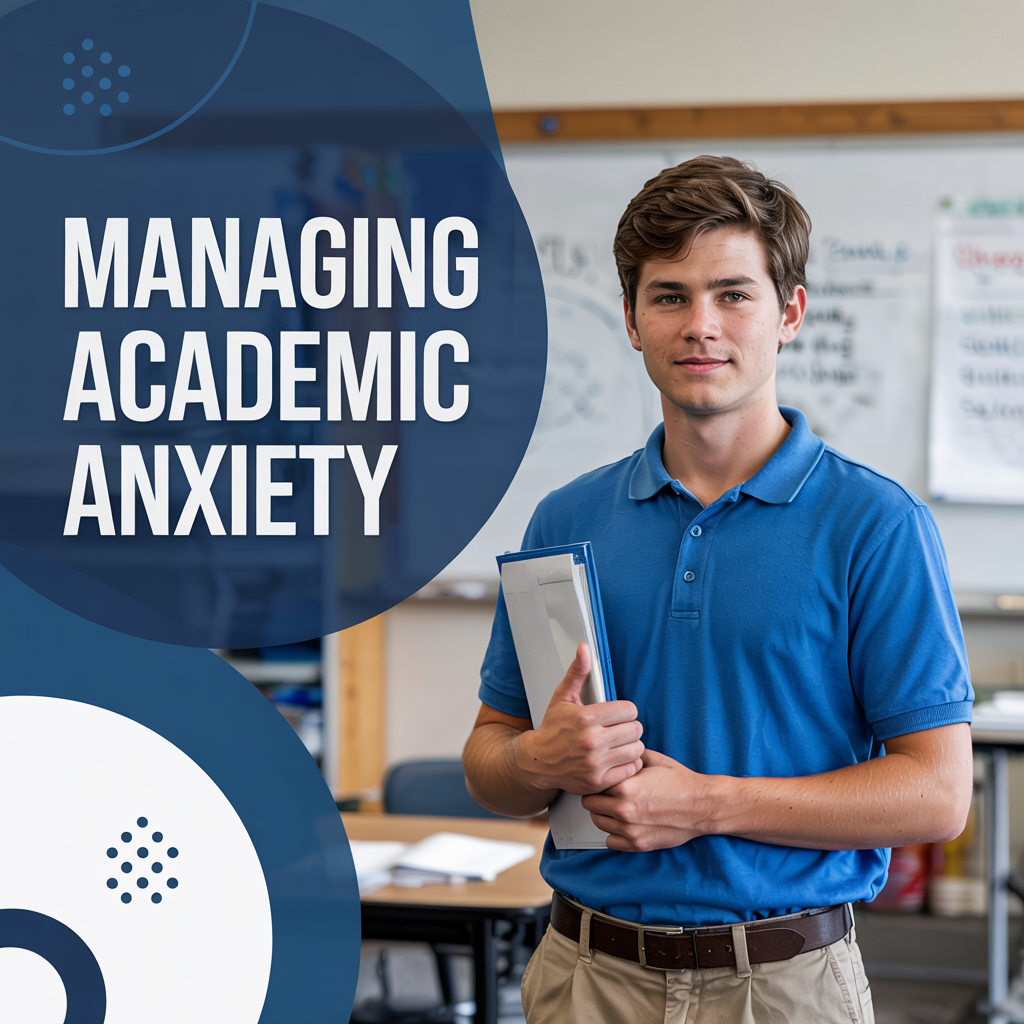Navigating Academic Anxiety: From Test Stress to Presentation Panic

School can be demanding. Juggling classes, homework, tests, projects, and presentations can quickly lead to stress and anxiety. Whether you freeze during exams, dread public speaking, or feel overwhelmed by assignments, you’re not alone — and there are ways to manage it.
By learning how to cope with school stress and anxiety, you can feel more in control. These tips can help you handle test pressure, presentation nerves, and the overall challenges of high school with more confidence.
School Stress is Real
Feeling anxious about school is common. Pressure to get good grades, fear of failure, heavy workloads, and social comparisons can all contribute. Academic anxiety isn’t just “in your head” – it can cause real physical symptoms (like racing heart, stomach aches) and affect your focus and performance.
Looking for more student support tools? Check out Cirkled in for resources that help you maintain a healthy mindset and well being.
Identifying Your Anxiety Triggers
What specific school situations make you most anxious?
- Tests and Exams: Worrying about forgetting information, running out of time, or getting a bad grade?
- Presentations/Public Speaking: Fear of judgment, stumbling over words, blushing, or freezing up?
- Homework Overload: Feeling overwhelmed by the amount of work, procrastinating, or worrying about getting it all done perfectly?
- Participation: Anxiety about speaking up in class?
- Grades: Constant worry about performance and expectations?
Pinpointing your main triggers helps you choose the right coping strategies.
Strategies for Tackling Test Anxiety
Test anxiety can interfere with showing what you know. Try these tips:
- Prepare Thoroughly (But Don’t Cram): Feeling prepared reduces anxiety. Study consistently over time, not just the night before.
- Practice Relaxation Techniques: Before and during the test, try deep breathing (inhale slowly, exhale slowly), muscle relaxation, or brief mindfulness exercises.
- Challenge Negative Thoughts: Replace thoughts like “I’m going to fail” with more realistic ones like “I studied for this, and I’ll do my best.”
- Simulate Test Conditions: Practice answering questions under timed conditions beforehand.
- Read Directions Carefully: Take a moment to understand what’s being asked before diving in.
- Focus on One Question at a Time: Don’t get overwhelmed by the whole test.
- Manage Time: Pace yourself. Skip hard questions and come back if needed.
Calming Presentation Panic
Public speaking anxiety is very common. These tips offer presentation anxiety help:
- Practice, Practice, Practice: Rehearse your presentation multiple times – aloud, in front of a mirror, for friends or family. Familiarity builds confidence.
- Know Your Material: Understand your topic well, don’t just memorize lines.
- Focus on Your Message: Concentrate on sharing your information, not on how nervous you feel or what others might be thinking.
- Deep Breathing: Take slow, deep breaths right before you start.
- Start Strong: Have your opening lines down cold. A confident start can ease nerves.
- Make Eye Contact (Briefly): Scan the room, making brief eye contact with friendly faces. Don’t stare at one person.
- It’s Okay to Be Nervous: Accept that some nerves are normal. Use the energy positively.
Managing Homework Anxiety and Overwhelm
Feeling buried by assignments?
- Break it Down: Divide large assignments into smaller, more manageable steps. Use a planner.
- Prioritize Tasks: Figure out what’s most important or due soonest.
- Set Realistic Time Goals: Estimate how long each task will take and schedule study blocks.
- Take Short Breaks: Step away for 5-10 minutes every hour or so to stretch or move. This is good study stress relief.
- Minimize Distractions: Put your phone away and find a quiet study space.
- Don’t Aim for Perfection: Focus on completing the task well, not flawlessly. This helps with managing homework anxiety.
General Tips for Coping with School Stress
- Get Enough Sleep: Sleep deprivation worsens anxiety.
- Exercise Regularly: Physical activity is a great stress reliever.
- Talk About It: Share your feelings with parents, friends, or a counselor.
- Maintain Perspective: Remind yourself that one test or assignment doesn’t define your worth or future.
- Seek Help: If anxiety significantly interferes with your life or schoolwork, talk to your school counselor or a mental health professional.
And if you’re looking to build your student profile and stand out, Cirkled in makes it easy to showcase your achievements and passions.
Final Thought: You Can Manage Academic Anxiety
Feeling anxious about school is totally normal — but it doesn’t have to take over. By using these academic anxiety tips, practicing relaxation techniques, preparing effectively, and reaching out for support when you need it, you can learn to manage school stress.
With the right tools, you can face tests, presentations, and assignments with more confidence and calm.
Need more tips on college applications, scholarships, or just how to survive this whole process? Cirkled In has your back—check out Cirkled In resources to help you through every step of your college journey!



0 Comments